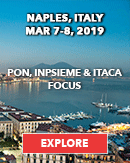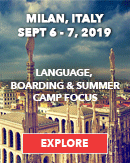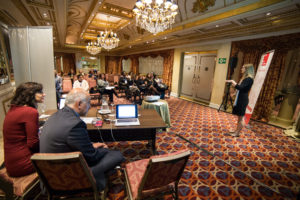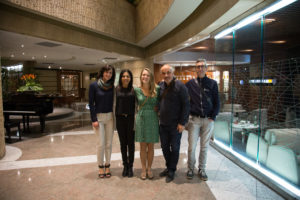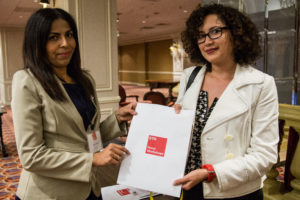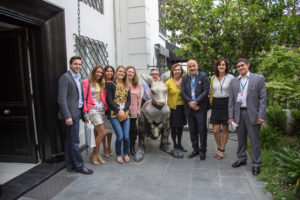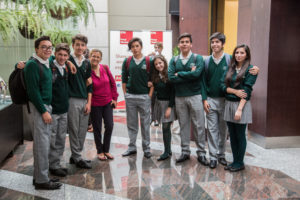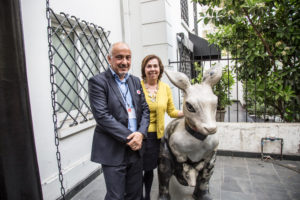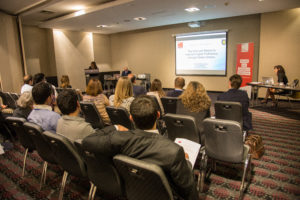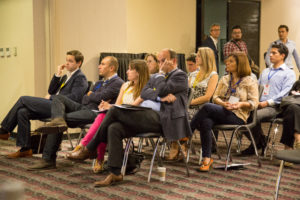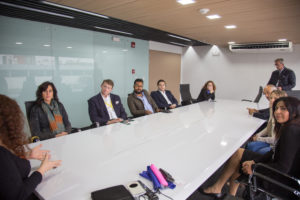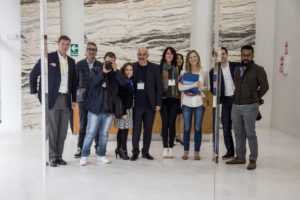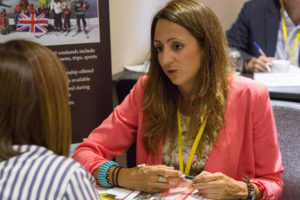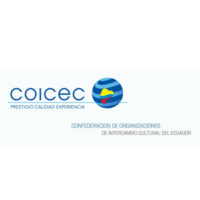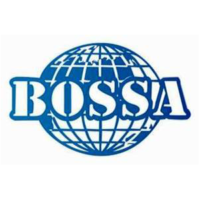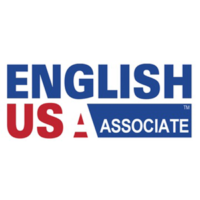INTERLINK Language Centers: Students’ Needs Come First
Language schools play a key role in the pursuit of education abroad. International students rely on them not just to master the appropriate level of language they will need to use for their studies and in everyday life in another country. Very often, language schools also lay a crucial foundation for successful cross-cultural integration and, subsequently, retention of international students within the hosting institution.
 Today, we put the spotlight on INTERLINK – language centers that do an excellent job as the vital link between their tight network of partner universities and prospective international students. Read the full interview with Marshall Brewer, Executive Director of INTERLINK Language Centers below.
Today, we put the spotlight on INTERLINK – language centers that do an excellent job as the vital link between their tight network of partner universities and prospective international students. Read the full interview with Marshall Brewer, Executive Director of INTERLINK Language Centers below.
ETN Focus: Tell us a bit more about INTERLINK Language Centers?
INTERLINK: Established in 1980, INTERLINK operates ESL programs on four US university campuses and include Indiana State University, The University of North Carolina at Greensboro, Valparaiso University, and, opening in 2017, St. Ambrose University.
The success and experience of the student is central to our operations. Students’ needs come first. This means the teacher guides and coaches and does not lecture. Students learn by doing. Teachers design learning experiences that expand what the student can do, inside the classroom, within the university, and in the community. Learning is holistic and includes study habits, social skills, critical thinking, and other essentials of good communication, academic preparation, and cultural orientation. Learning is reflective. Students use knowledge and skills in new ways and develop the capacity to think clearly and critically. Learning is discovering and depends on the student’s motivation, creativity, goals, and needs.
 E: What kind of international students do you look for?
E: What kind of international students do you look for?
I: INTERLINK seeks high school and university graduates with each of these qualities:
- who are serious about learning English (as demonstrated by their grade point average)
- who intend to enroll at a university in the US or elsewhere or who have graduated and will need English on the job
- who are curious, motivated, and respectful
E: What are your advantages of working with student recruitment agents?
I: In face-to-face meetings, agents can explain the features of our program more clearly than a brochure or a webpage would. The agent is a professional who understands the needs of her or his clients. We trust the agent to be focused on their clients’ needs and recommend programs accordingly. Finding the right educational institution for the client can be a challenge. We seek representatives who understand our distinct way of helping students learn and can identify clients who will benefit from the INTERLINK approach.
E: How do you support the agents you work with?
I: INTERLINK supports its representatives in several ways.
- We listen and respond carefully, thoughtfully, and respectfully. We are all in this business together.
- We provide clear and friendly personal contact for counselors frequently (email, Skype, phone).
- We offer documents designed for use by the agent’s clients.
- We ensure the relationship between INTERLINK and agent is a human one, informed by mutual needs and interests.
- The online manual for agents provides guidance to counselors, their trainers, and supervisors.
- We affiliate with high quality US universities that are known for their commitment to international education.

E: How does INTERLINK Language Schools’ membership in the American Consortium of Universities strengthen the consortium’s international student recruitment and retention efforts?
I: Retention of students occurs when there is a good match between the student and the institution. Students who are academically prepared by INTERLINK have greater success and satisfaction with their degree programs as shown by their graduation rates. Unlike the INTERLINK experience, standardised tests do not predict academic success of students.
While each member institution conducts its own, separate recruitment activities, our schools provide the on-campus training that almost all international students need prior to enrolment. Further, most sponsors prefer universities with on-campus English programs. In this case, INTERLINK serves as an excellent recruiting mechanism. INTERLINK not only provides this attractive recruitment feature but offers programs that focus on preparing students linguistically, academically, and cross-culturally. The four university members of the Consortium rely on INTERLINK for intensive English training that is effective, broad-ranging, rapid, and inexpensive.
E: Do you reach out to alumni who have attended your schools? How do you follow up on your former students’ future activities and endeavours?
I: INTERLINK has a program newsletter that is shared with alumni. There is also quite a lot of social media activity, including Facebook, Twitter, Instagram, and YouTube, among others. Graduates who attend the university return to us and speak with new students and their former teachers. For them, INTERLINK has become their home away from home.
Even so, our alumni are well integrated into their universities. Most former students understand INTERLINK is part of the university and may not consider it separate. Alumni visit classes and talk about their university experience. After university graduation, INTERLINK alumni often refer their friends and relatives, describing.
***
All photos courtesy to INTERLINK.








